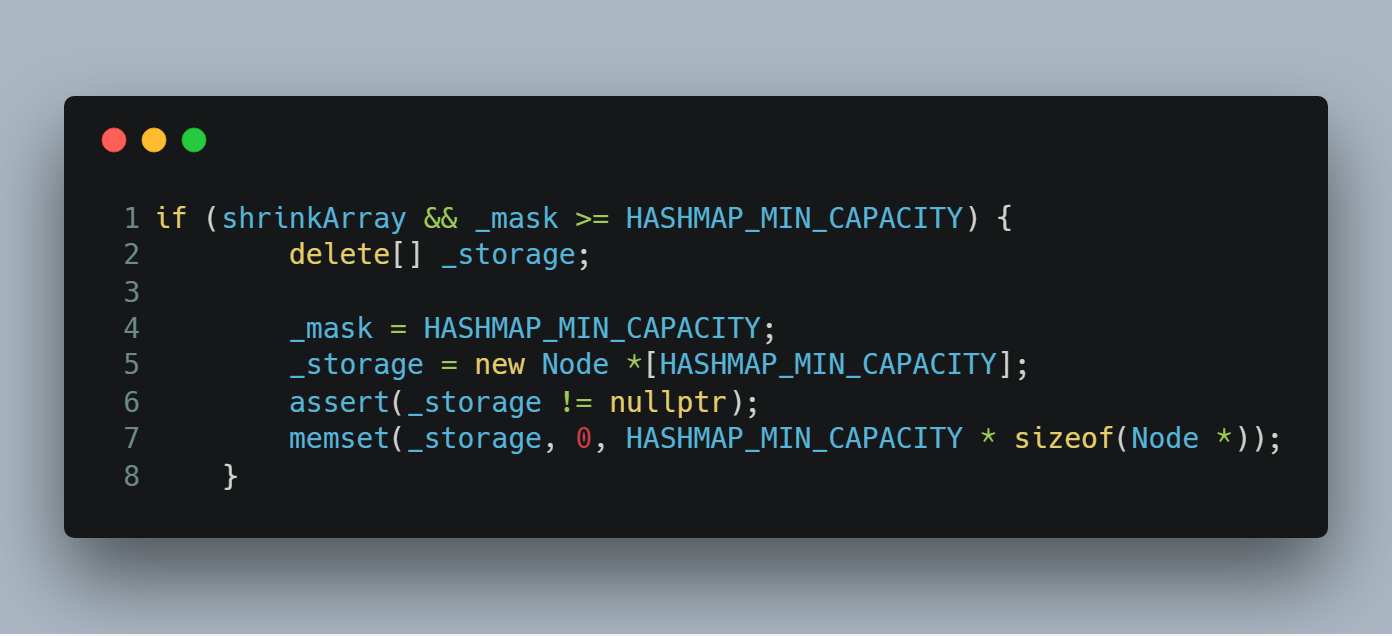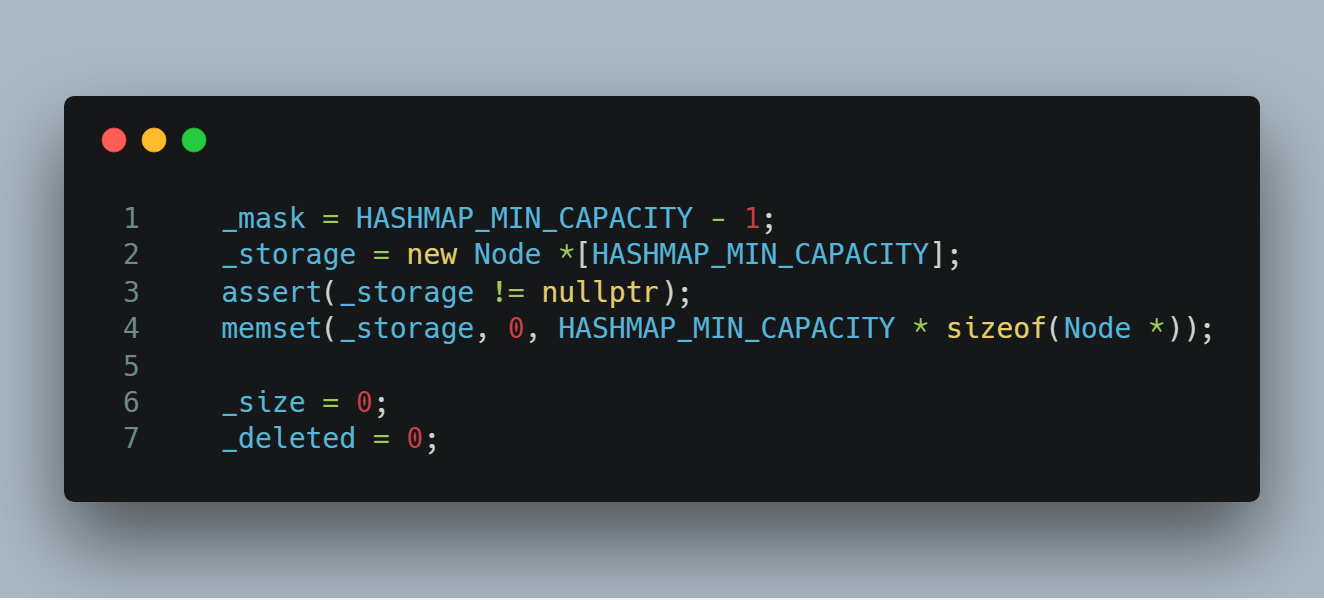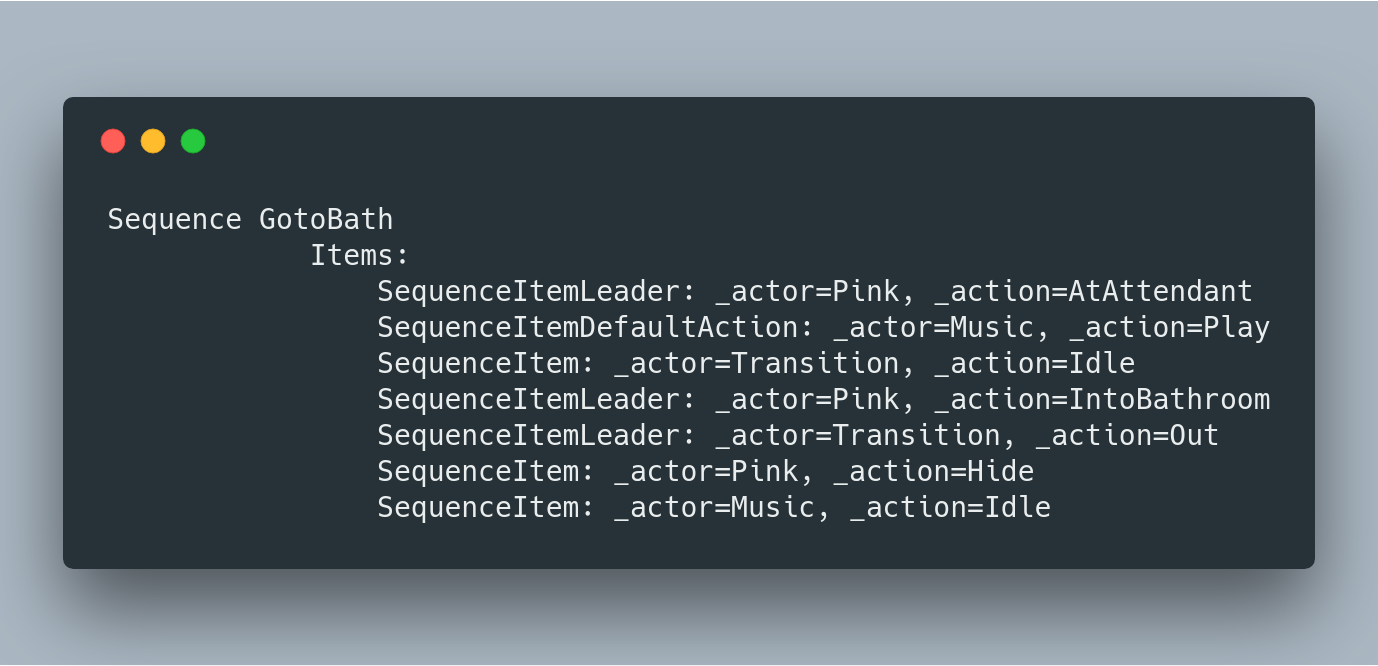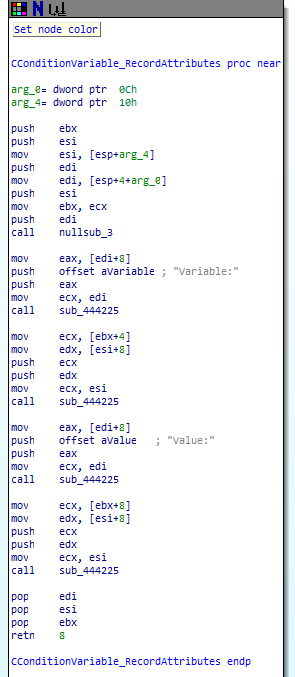At the second week I have done:
- Fixed formatting
- Removed C++11 features(lambdas, auto, extended initializer lists)
- Fixed unsigned vs signed comparison
- Found and fixed bug in ScummVm’s hashmap
- Added improved pause support
- Added saving system (currently without metadata)
The most interesting was fixing the bug in Hashmap. At first, I thought that this was problem with my code. Experimented with code and noticed that calling clear with true parameter causes this bug. So I looked at clear method implementation(Line 4):
 And this part of HashMap constructor(Line 1):
And this part of HashMap constructor(Line 1):

Simple mistake, which was easily fixed


